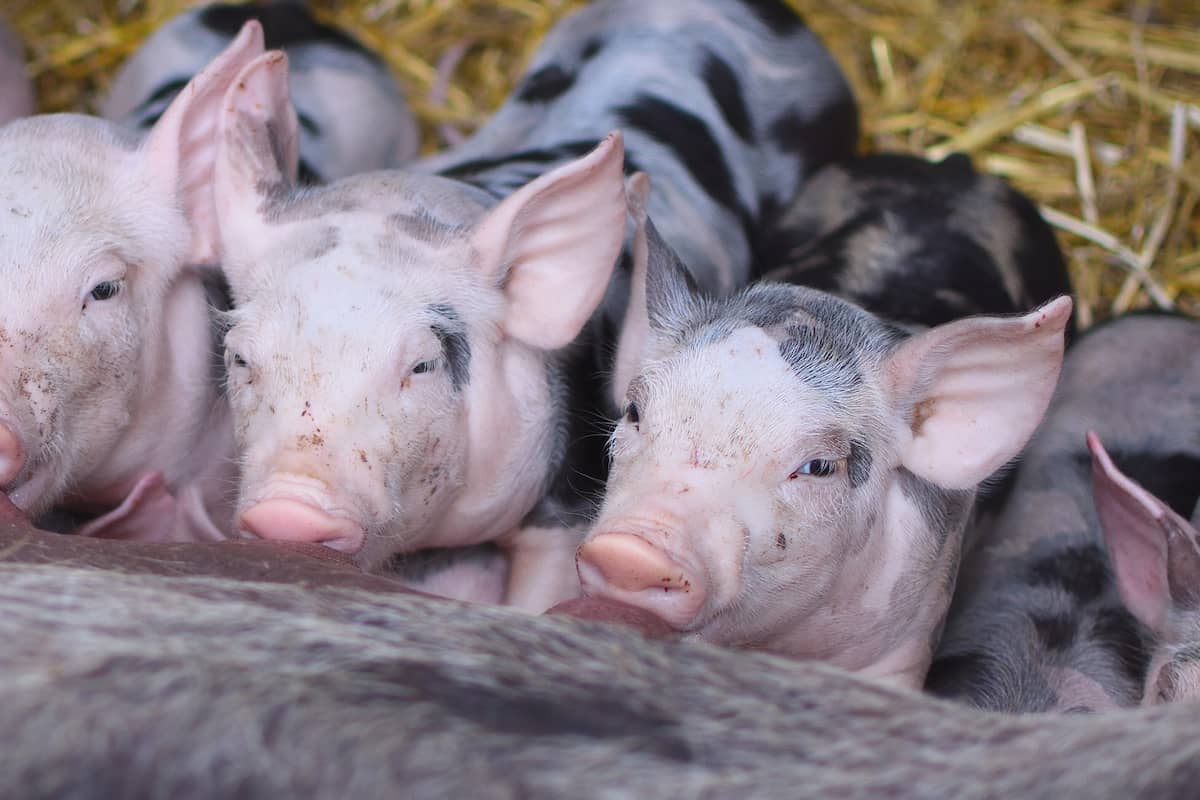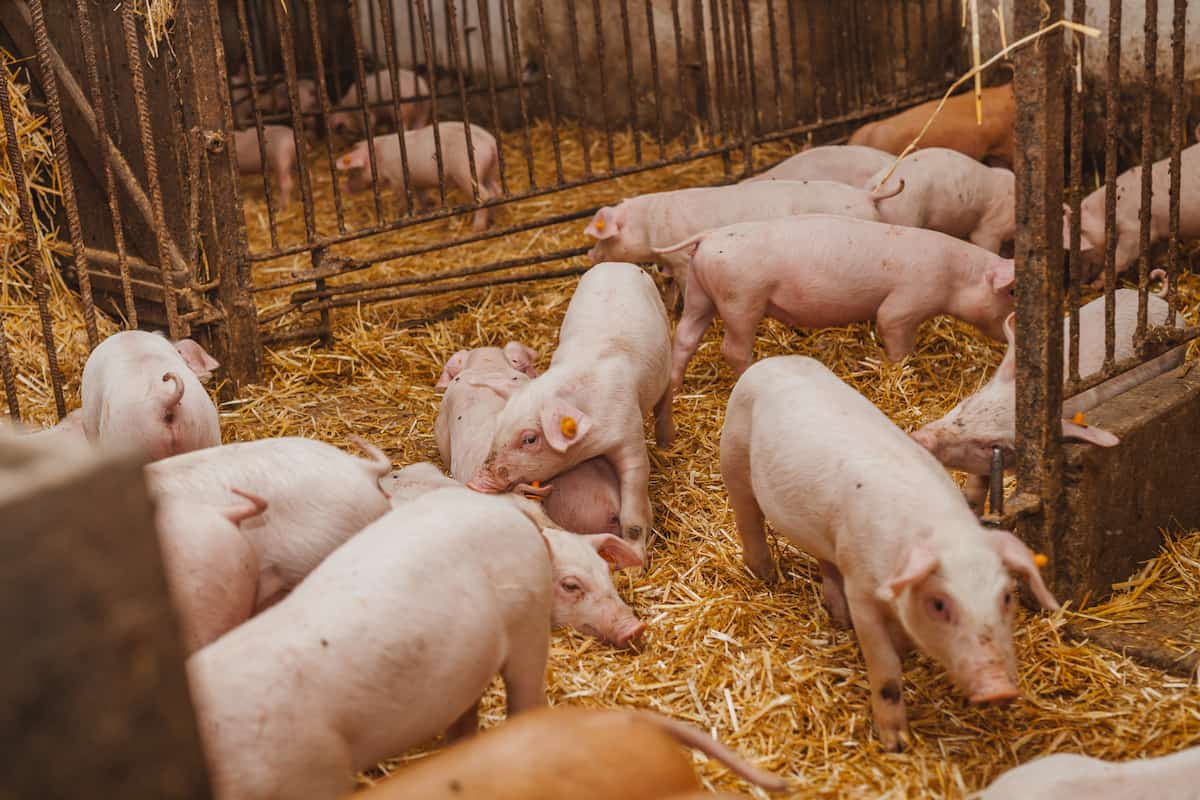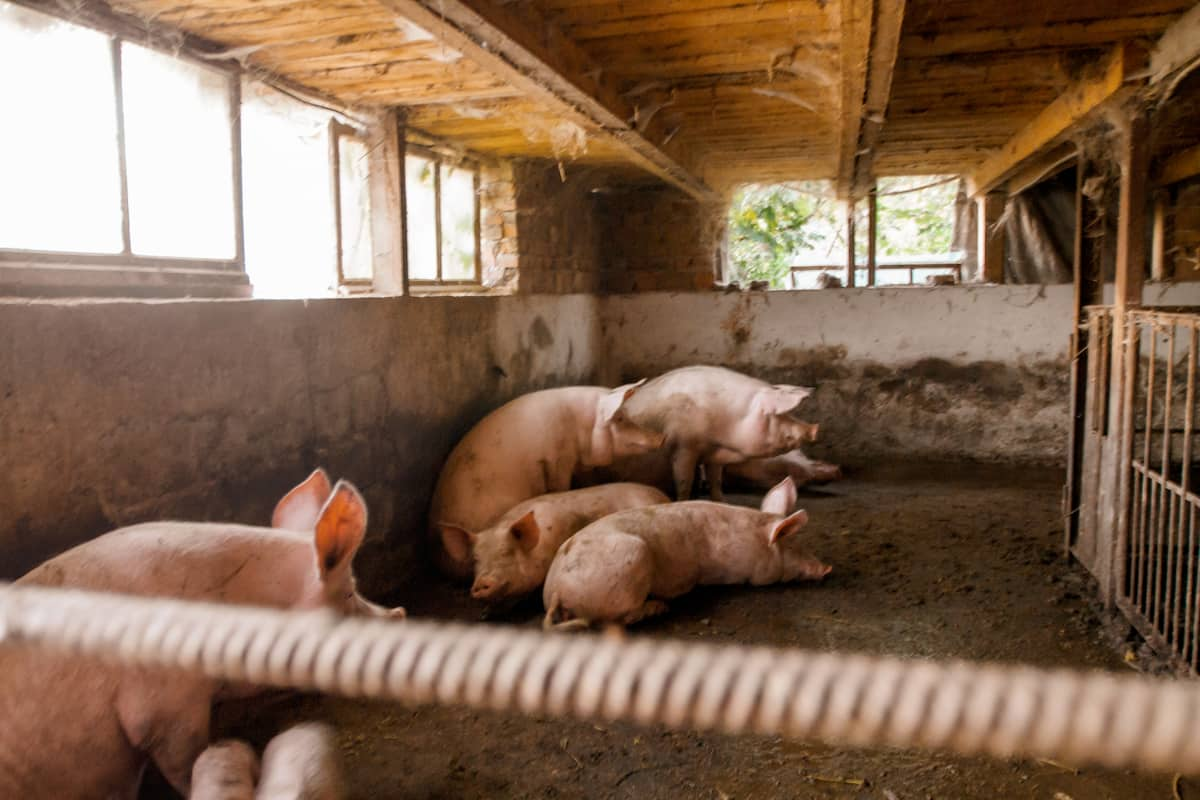Pig farming in South Africa has grown significantly in recent years thanks to the increasing demand for pork and the industry’s profitability. The country has a rich history of pig farming, which has evolved into a sophisticated and sustainable practice that provides jobs, food, and income for thousands of South African households. This article explores the various aspects of pig farming in South Africa, including cultivation practices, breeds, housing, feeding, health management, and marketing strategies.

Starting a Pig Farm in South Africa
The South African Pig Farming Industry
The South African pig farming industry is diverse, with small-scale and large-scale farms operating nationwide. Small-scale farms typically have a few dozen pigs, while large-scale farms can house thousands of pigs. Most pig farms in South Africa are located in the Gauteng, Western Cape, KwaZulu-Natal, and Eastern Cape provinces. As of 2021, there were approximately 1.6 million pigs in the country, contributing to a total pork production of about 290,000 metric tons annually.
Cultivation Practices
Selection of Breeds
The choice of pig breed is a crucial factor in the success of a pig farming operation. South African farmers typically choose breeds based on adaptability to local conditions, growth rate, feed efficiency, and carcass quality. Some of the popular pig breeds in South Africa include:
- Large White: This breed is known for its fast growth, good feed conversion, and excellent carcass quality. They are white in color and have erect ears.
- Landrace: Landrace pigs are known for their high-quality carcasses and large litter. They are white in color and have long, drooping ears.
- Duroc: This breed is known for its excellent growth rate and feeds conversion efficiency. Duroc pigs have a reddish-brown color and are well-adapted to South African conditions.
- Hampshire: Hampshires are highly regarded for their carcass quality and lean meat. They have black bodies with white belts around their shoulders and front legs.
Housing
Proper housing is essential for pigs’ health, growth, and overall well-being. South African pig farmers use different housing systems, depending on the scale of their operation and available resources. Some common housing systems include:
- Intensive system: This system is used in large-scale pig farming operations, where pigs are housed in climate-controlled buildings with automated feeding, watering, and waste management systems.
- Semi-intensive system: In this system, pigs are housed in well-ventilated buildings with concrete or slatted floors and can access outdoor areas for exercise and sunlight.
- Extensive system: This system is typically used in small-scale pig farming operations, where pigs can roam freely in large, fenced outdoor areas with access to simple shelters for protection from the elements.
Feeding
Feeding is critical in pigs’ growth, health, and productivity. South African pig farmers use a variety of feed sources, including commercial pig feed, locally available agricultural by-products, and household food waste. Pigs require a balanced diet with nutrients such as carbohydrates, proteins, fats, vitamins, and minerals. Farmers must carefully plan their feeding strategies, considering their pigs’ age, weight, and reproductive status.
In case you missed it: Berkshire Pig Facts: Origin, Size, Physical Characteristics, Pros, and Cons

Health Management
Maintaining good health is essential for the success of a pig farming operation. South African pig farmers must prioritize biosecurity measures, disease prevention, and timely treatment of illnesses. Some key health management practices include:
- Vaccination: Pigs should be vaccinated against common diseases such as African swine fever, classical swine fever, porcine reproductive and respiratory syndrome (PRRS), and swine erysipelas. Regular vaccination schedules must be followed to ensure the health and well-being of the pigs.
- Parasite control: Farmers should implement parasite control measures such as deworming, regular cleaning of housing facilities, and maintaining proper sanitation to prevent the spread of internal and external parasites.
- Biosecurity: Implementing strict biosecurity measures on the farm helps minimize the risk of disease transmission. Some of these measures include limiting access to the farm, providing protective clothing and footwear for farm workers, and isolating new pigs before introducing them to the herd.
- Monitoring and treatment: Regular monitoring of the pigs’ health and prompt treatment of illnesses or injuries is essential to maintaining a healthy and productive herd.
Breeding and Reproduction
Effective breeding and reproduction management is crucial to the sustainability and profitability of a pig farming operation. South African farmers utilize different breeding techniques, including natural mating, artificial insemination, and controlled breeding programs. Some key aspects of breeding management include:
- Selection of breeding stock: Farmers should select healthy and high-performing pigs with desirable traits for their breeding stock.
- Monitoring estrus and mating: Close observation of the pigs’ reproductive cycles and timely mating can help ensure successful pregnancies and optimal litter sizes.
- Pregnancy and farrowing management: Pregnant sows require special care, including proper nutrition, comfortable housing, and regular health monitoring. Adequate preparation for farrowing, including providing clean and comfortable farrowing pens, is crucial for the sow’s health and piglets.
Marketing Strategies
South African pig farmers can employ various marketing strategies to maximize their profits and ensure the sustainability of their operations. Some common marketing options include:
- Direct sales: Farmers can sell their pigs to consumers, butcher shops, or local markets. This approach allows farmers to set prices and retain more control over their sales.
- Wholesale: Selling pigs to wholesalers or processors can provide a stable source of income for farmers, as these buyers often purchase large quantities of pigs and offer contracts with fixed prices.
- Value addition: By processing their pigs into products such as sausages, bacon, or ham, farmers can increase the value of their products and potentially access higher-paying markets.
- Niche markets: Some farmers may focus on niche markets, such as organic or free-range pork, which often command higher prices due to their specialized production methods and perceived quality.
In case you missed it: Duroc Pig Facts: Origin, Size, Physical Characteristics, Pros, and Cons

Conclusion
Pig farming in South Africa has become a significant industry, providing income and employment opportunities for thousands of households. By adopting sustainable and efficient cultivation practices, South African pig farmers can ensure their operations’ continued growth and success. This requires attention to detail in breed selection, housing, feeding, health management, breeding, and marketing strategies. With careful planning and execution, pig farming can continue to thrive and contribute to the country’s agricultural sector.
- Feed Your Flock for Less: Top 10 Tips to Save on Chicken Feed
- Ultimate Guide to Ossabaw Island Hog: Breeding, Raising, Diet, and Care
- Hatching Answers: The Top 10 Reasons Your Chickens Aren’t Laying Eggs
- Eggs and Economics: Breaking Down the Cost of Raising Backyard Chickens
- Defend Your Greens: Proven Methods to Keep Iguanas Out of Your Garden
- Ultimate Guide to Cinnamon Queen Chicken: A Comprehensive Guide for Beginners
- Ultimate Guide to California Tan Chicken: Breeding, Raising, Diet, Egg-Production and Care
- Ultimate Guide to Marsh Daisy Chicken: Breeding, Raising, Diet, and Care
- 10 Types of Chicken Farming Businesses You Can Start for Profits